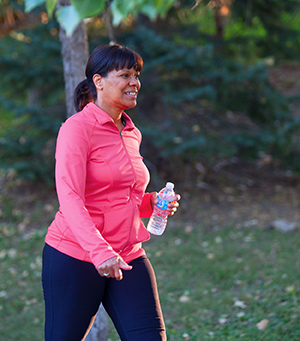Taking care of your health can help you recover faster, feel better, and reduce the risk of reinjury. Factors that can affect your health and the health of your back include stress, excess weight, smoking, and how you use your back. Addressing these issues now can help you keep your back healthy in the long run.
Releasing tension
Stress can lead to tight, painful muscles. Try these methods for releasing tension:
-
Deep breathing. Slow, calm, deep breathing can help you relax. Breathe in for a count of 5 or more. Then slowly let the breath out.
-
Visualization. Imagining a peaceful, secure scene can give you a sense of control over your body and surroundings.
-
Progressive relaxation. This is done by tightening and then releasing muscle groups. Start at the top of your head and work your way down your body. Tighten each muscle group for 5 to 10 counts. Then release the muscle group for the same amount of time.
Managing your weight
Excess weight increases the load on your lower back and can make you more likely to have joint damage. It also raises your risk for diabetes, high blood pressure, and heart disease. So staying at a healthy weight makes your back less likely to be injured. And it's important for your overall health. If you need to lose weight, talk to your healthcare provider about exercise and changes in your diet. Your provider may advise a weight-loss program to help.
Walking for back health
Walking is part of your recovery. It’s also one of the best things you can do to maintain your back health from now on. Regular exercise can also ease stress and help you manage your weight. Make a habit of walking often.
Lifting
Ask your healthcare provider how much weight you can lift and when. Never bend from the waist to lift something off the ground, even if it is light. Always bend your knees so that you lift with the strength of your legs and keep the object close to your body. Never twist your back as you lift.
If you smoke, quit!
Smoking and other nicotine products can slow your recovery from surgery. It keeps your muscles from getting the oxygen they need and impairs new bone formation, which is needed if you had a spinal fusion. And it may make your disks more prone to damage. If you smoke or use nicotine-containing products, talk to your healthcare provider about how to quit. Your provider may advise a stop-smoking class or prescribe medicine or aids to help you quit. Be persistent. It often takes more than 1 try to succeed in quitting.
Featured in


